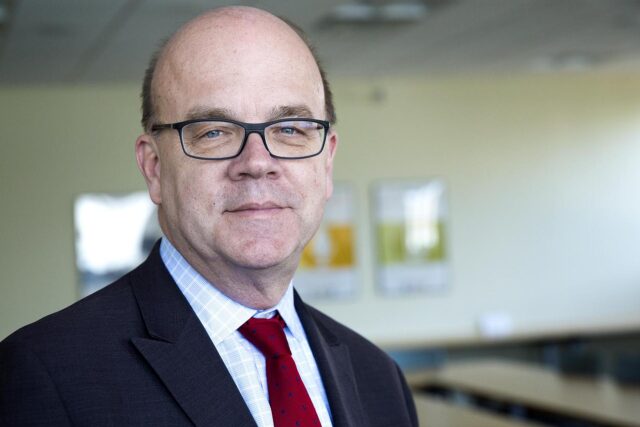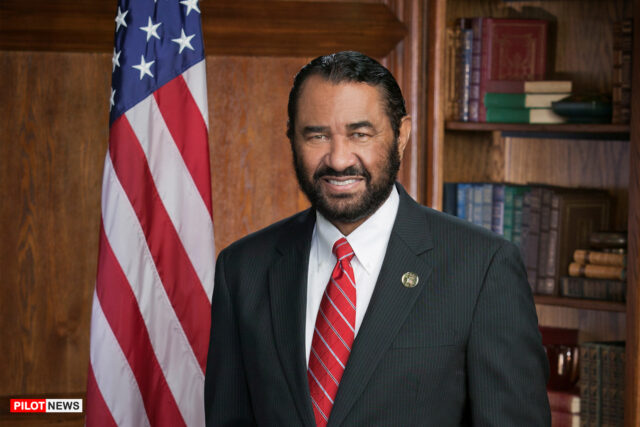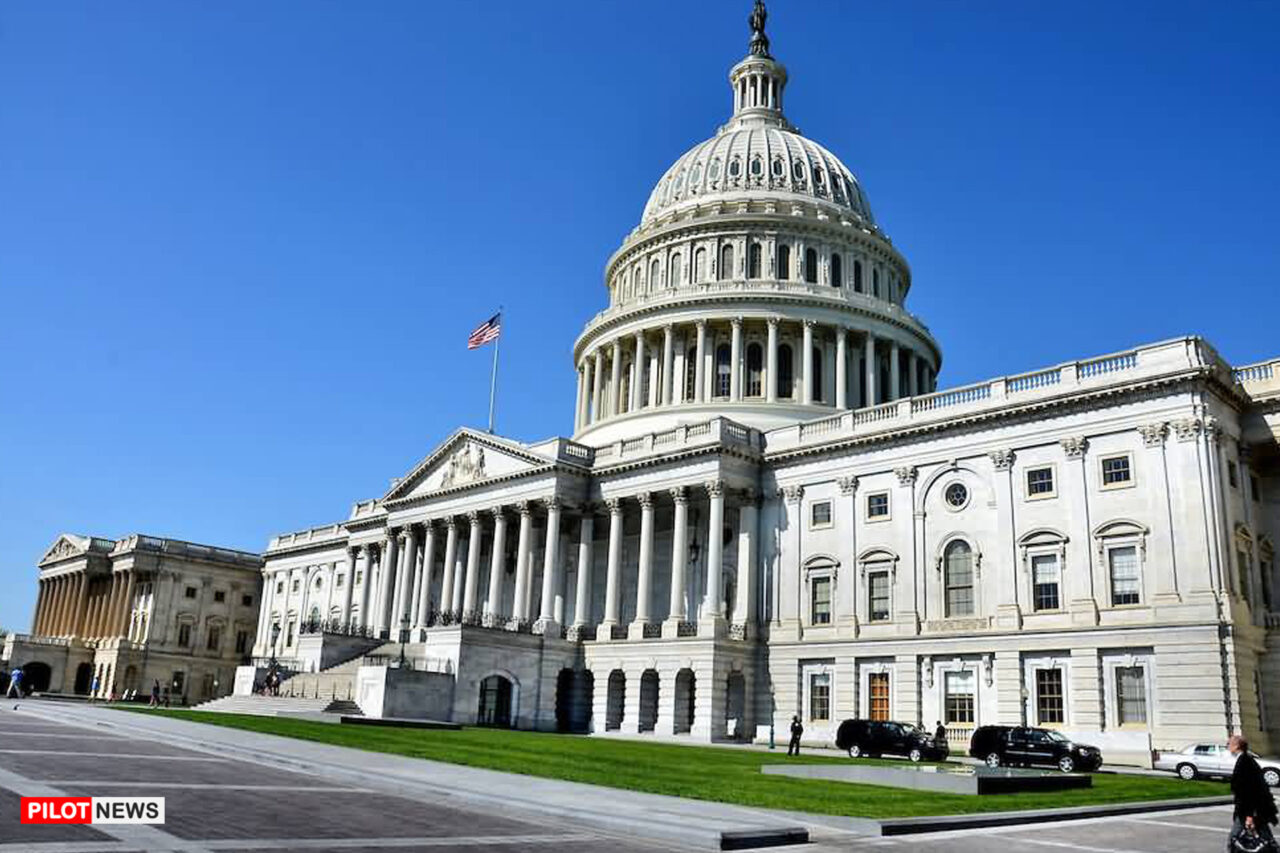The United States’ Tom Lantos Human Rights Commission (TLHRM), yesterday, said, Nigeria as a whole faced a 7.3% risk of experiencing a new mass killing by the end of 2021, the 6th highest in the world.

The hearing which took place around 1pm at 2172 Rayburn House Office Building and Virtual via Cisco WebEx is titled, ‘Conflict and Killings in Nigeria’s Middle Belt’ and hosted by Congressmen Christopher Smith and James McGovern who co-chaired the TLHRM.
The hearing focused on the human rights situation in Nigeria’s Middle Belt, emphasized the religious dimension of the conflict within the region and proposed some resolutions.
It posited that the cause of the conflict was the competition for access to land and other resources between herdsmen and farmers as a result of drought, desertification, and climate change.
In announcing the hearing, Smith said, “In a part of the country where farmers are mainly Christian and pastoralists are mainly Muslim and ethnic Fulani, deadly confrontations have sharpened ethnic, regional and religious polarization. Precise statistics are unavailable and fatality counts are contested, but one analysis estimated that farmer-pastoralist conflicts killed 2,000 Nigerians annually between 2011 and 2016. Some have described attacks by pastoralists as a persecution of Christians, amounting to an attempted or unfolding genocide. Some Muslim leaders, for their part, have described attacks on Fulani as part of an effort to purge Nigeria’s Muslim community. The Nigerian state has failed to provide protection or ensure accountability for any of the victims.”
Making reference to the annual Statistical Risk Assessment (SRA) of the Holocaust Memorial Museum’s Simon-Skjodt Center for the Prevention of Genocide projected Nigeria as a whole faced a 7.3% risk of experiencing a new mass killing by the end of 2021, the 6th highest in the world.
The Commission heard from lawmakers Congressman Al Green and Congresswoman Sheila Jackson Lee, both of Houston, Texas a city which is home to the largest Nigeria community in the United States.
In his presentation, Congressman Al Green called for #EndSARS Resolution to Be Brought to Floor for Vote.

“I must thank Congressman McGovern, Chairman of the Tom Lantos Human Rights Commission, for inviting me to speak before the Commission regarding my resolution, H.Res. 1216. Introduced by myself and Congressman Joaquin Castro (TX-20) five weeks ago, this resolution supports the #EndSARS peaceful protest movement in Nigeria and condemns the violent crackdown on peaceful protesters by Nigeria’s security forces,” expressed Congressman Al Green. “Today, as I speak before the Human Rights Commission, I am reiterating that condemnation. Because H.Res 1216 concerns life and death issues, I will call for this resolution to be brought to the floor of the House of Representatives for a vote.”
Congressman Al Green continued, “By passing H.Res. 1216, our nation will send a powerful message to the world, and especially to the people of Nigeria, that our voices will not be muted when such gross violations of human rights are taking place. According to Nigerian, African, and international law, Nigerians have a right to assemble and peacefully protest. Black lives matter wherever they may be in the world, and it is up to all of us to stand in solidarity with these peaceful protesters so they can safely exercise this right.”
Congressman Joaquin Castro, Vice Chair of the House Foreign Affairs Committee, added, “Congress should immediately pass this resolution and send a powerful message to the people of Nigeria that we stand in solidarity. Both here in the United States and around the world, we must work toward ending police brutality.”
The commission additionally heard from several witnesses —mostly international human rights organizations and religious bodies to testify and give accounts of the human rights situation in the country.
The witnesses examine Nigeria’s Middle Belt conflict and herdsmen-farmers conflict, the historical background of the conflict, humanitarian, internally displaced and impunity, the dynamism that the conflict is taking, gave recommendation for US and other international responses.
One of the witnesses, Udo Jude Ilo, Nigeria Country Officer, Open Society Initiative for West Africa, urged the commission to resist the temptation in framing the conflict around religion and ethnicity. He cited government inability and accountability to prosecute criminals among many other factors.
According to Ilo, “It is really very important for me to reduce the challenges in the Middle Belt of Nigeria into a single tagline of religious violence or ethnic war. It is something much more insidious. It is about a country that has lost its soul.”
The activist said that the Middle Belt of Nigeria is a victim of bad governance, poverty and weak institutions. Stressing that over 60,000 lives were lost to farmers-herders crisis within the region since 2001, adding that in 2016, more deaths were attributed to the crisis that the Boko Haram menace.
“The Middle Belt of Nigeria is a victim of bad governance, weak institutions and poverty. The situation is much more complex than violence against a religious group or violence between religious groups.
“An estimated 60,000 people have been killed because of the farmer-herder related violence in Nigeria since 2001. In 2016, more deaths were attributed to this violence, than to Boko Haram menace in the region.
“The violence between farmers and herders are not only in Nigeria in West Africa. However, in Nigeria, this issue intersects and is conflated by pre-existing tension in already very fragile states. Many of the herders in Nigeria are Fulani and are Muslims, nomadic pastoralists and so, conflicts are easy and often miscategorized as religious consternation.
“Adding to this Mr. Chairman is the indigene-settler related conflict prevalent in many states and intrinsically tied to scarce resources and political opportunities.
“But this is not the full story, there is a growing banditry in the region which has crippled insecurity, loss of livelihood and heightened distrust among communities.
“The middle belt is susceptible to this level of violence and instability for a number of reasons.
“There is of course what has been mentioned, the dwindling pastures and further resources, because of climate change which has increased consternation for scarce resources. There has been an influx of foreign pastoralists due to the porous border, and of course, these is subsequent encroachment into crop land, the conflict that arise from it and the fact that these people are not documented, the inability of the state to hold them accountable when they wreak havoc in the region.
“There are dwindling water resources again, because of desertification in the country and the inability of the government to put in policies that can address this kind of problem.
“There is a poor handling of land cases by traditional rulers and our courts, leading many to resort to self-help and violence to protect their proprietary interest.
“There is of course the absence of effective government policies for inclusive economic and political opportunities.
“Youth illiteracy and unemployment is quite acute in the Middle Belt of Nigeria. There is proliferation of arms in millions across the country.
And of course, as it has been mentioned by some of the people who have testified today, the lack of capacity by the Nigerian police to prevent violence, stop violence or ensure accountability for violence.
“There is a huge loss of trust between communities, among communities and between communities and security agencies due to historic grievances and unresolved cases of abuses against these communities.
“And of course, the lack of initiative and political will by successive governments in Nigeria to take drastic action to address underlying divers of conflicts.
“Mr. Chairman, religion and ethnicity are also factors. Over the years, politicians across the aisle consistently use religion and ethnicity as a tool of mobilization for political power. Oftentimes, these narratives paint the other as the enemy and the reason for underdevelopment in community. This toxic manipulation has destroyed long standing relationships across communities and hampers the capacities of communities to engage in peaceful dialogue and resolve issues amicably.”
He went further that, “the structure of government has also amplified the situation. The character of our politics which places religion and ethnic affinity over competency. In many cases, I have seen communities, living in the belief that the government is against them. Currently Mr. Chairman, about 90% of Nigeria security architecture is firmly under the control of individuals who either speak the same language as the President or adhere to the same faith. The current Nigerian president by the way is a Muslim.
“This kind of exclusive behavior creates the perception of an in-group of those who are in power and an out-group of those not belonging to the same linguistic or religious group. It also sustained the perception of state sponsored or condoned arms against ethnic groups and religious groups that are not in power like the situation we currently have in the Middle Belt.”
He then suggested some way forward of solving the decades problems in Nigeria’s Middle Belt while calling on the international communities to support the efforts of Nigerians who are working in solving the problem.
He said, “Addressing this challenge Mr. Chairman, will require very fundamental action. But I think I must restate the point that we must resist the temptation to frame this conflict in the simplest term of religion and ethnic strife. While they both played a role, understanding the other fundamental drivers around access to food and land; criminality and of course, the fractured socio-structure will be critical in designing a comprehensive solution.
“The blame must be placed where it supposed to be, at the feet of our government, who over the years have consistently failed to take bold action to stern criminality, to punish people who killed other people or to upset whatever political allegiances they have in order to work for the common good of the country.
“Their inability to secure this country has embolden criminals who tried to parade either under religious or ethnic cover to wreak harm and terror in the country. And people who are in position of authority must be held accountable individually for what they have done. And on this call, the United States and International Communities should support the efforts of Nigerians to ensure that these individuals are made to feel personal discomfort for their inability to do their duty to their country.
“Engagement also must focus on enhancing holistic policy response, and not just having this policy response, but making sure that we pressure our government to see through those policy responses. I have been doing this, amplifying these voices, to ensure adequate support, accountability and stability.”


